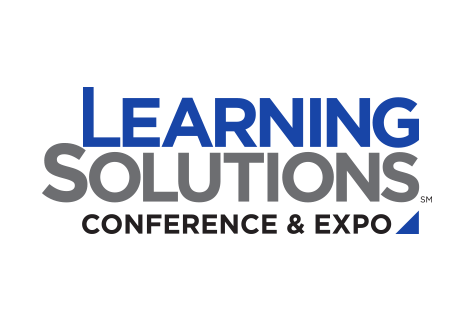Learning Solutions Concurrent Sessions
The Learning Solutions Conference & Expo offers over 100 concurrent sessions covering eLearning best practices, how-tos, case studies, and emerging trends. These sessions will help you develop new skills and knowledge, which will help you build more engaging and effective learning experiences.
Specialized Focuses
In addition to the great tracks at Learning Solutions Conference & Expo, there are a number of specialized sessions curated to help you put your skills into practice immediately.

The AlignED series of sessions focuses on what higher ed and corporate learning professionals can learn from one another. These sessions help bridge the gaps between academic and corporate education.

B.Y.O.L.® (Bring Your Own Laptop®) workshops ensure that you receive in-depth, hands-on training and enable you to follow along with the instructor step-by-step.
Filter By:
Sessions in Data and Measurement Track
LS201 Accountant, Strategist, or Sherlock: Using Learning Data in Context
Concurrent Session
Most people in the learning and development field didn’t choose the profession because of a deep love for statistics, and few have ready access to data scientists for consultation. But the availability of an ever-growing body of data highlights the value of a fundamental understanding of data collection and analysis. Learning data will only provide valuable, actionable information if curated and evaluated strategically.
Read MoreToo often, learning is evaluated based upon one of two measures: whether learners like it, and/or how much it costs to produce. Unfortunately, the former isn’t useful, and the latter isn’t critical. Yet, increasingly, actions will have to be documented, and measurement is key. There are meaningful metrics for learning, but they should be about whether they are helping the organization. Kirkpatrick, ROI, impact—to make sense of these, you need to know some core concepts.
Read MoreLearning professionals all struggle to measure the transfer of skill from the classroom to the job, especially with geographically dispersed learners. Designers need advice on how to solve this measurement challenge and involve managers in the solution. How do you observe and assess your remote employees performing critical job competencies?
Read MoreDigital badging is gaining traction in varied corners of the learning and development space from traditional academic environments to organizations and more. However, due to its relative novelty, there are some significant adoption barriers to those incorporating badging strategies.
Read MoreLS605 A Curated Learning Journey: ePortfolios and Open Digital Badges
Concurrent Session
Designing open and digital badges for evidence presented in curated learning ePortfolios, endorses and verifies the claims that a learner makes in this digital narrative—these claims are made against badge criteria and standards that have been co-designed by key stakeholders in the learning journey. Dartmouth College designed and developed badging to track the portion of a course that focused on digital scholarship skills where students could receive both a grade and a badge for each assignment, which would earn a progress badge, and completion of an entire training sequence or practice sequence would earn a completion badge.
Read MoreHow do you know if the money spent on training and development is worth it? One of the ways find out is by using analytics to assess who is using content: where, when, and how. Deciphering the ways to analyze a program’s effectiveness can be confusing. There is a lot of talk about big data, but what does it all mean? And just because there is a lot of data, does that really make any of it valuable?
Read MoreAs adoption of the xAPI begins to take hold, the convergence of working and learning offers instructional designers the opportunity and the challenge to do more than ever before. The xAPI allows for more robust and interesting tracking of the learning process, including learning that happens outside the LMS and on the job. As an instructional designer, are you ready to step up to this challenge?
Read MoreLS806 Evaluating Your Assessments: Are You Testing the Right Thing?
Concurrent Session
Learning in an eLearning module is generally assessed through multiple choice questions, rather than measuring demonstrations of target behaviors. When you design eLearning, you build in knowledge checks. All too often, these quizzes are reading comprehension tests rather than authentic assessments of skills. You need to test the target objectives to ensure you meet the goal of the program.
Read MoreLS903 The Missing Link: Data Interoperability from Learning Systems to Operations
Concurrent Session
SCORM, the xAPI, cmi5, and a host of other learning data standards exist and have widespread acceptance in the learning community. How can these standards extend beyond the learning world into the realm of enterprise technology? What the industry needs now is a distinct and real conversation on how to align learning technology with the technology used by the rest of the enterprise.
Read MoreA badge is a symbol or indicator of an accomplishment, skill, competency, or interest. Badges provide evidence of learning that happens in and beyond formal learning settings. Unlike transcripts or resumes, badges give prospective employers, schools, collaborators, and other learners a more complete picture of knowledge, skills, and abilities of the badgeholder. As with degrees, certificates, and credentials, a comprehensive ecosystem surrounds and supports badges.
Read MoreAs the financial and operational benefits of big data become more apparent to business leaders, the demand for accountable and impactful learning is growing. Learning portals, MOOCs, the xAPI, social media, and collaboration tools provide new channels for learning delivery, yet most learning departments are stuck measuring the traditional four levels.
Read More


























